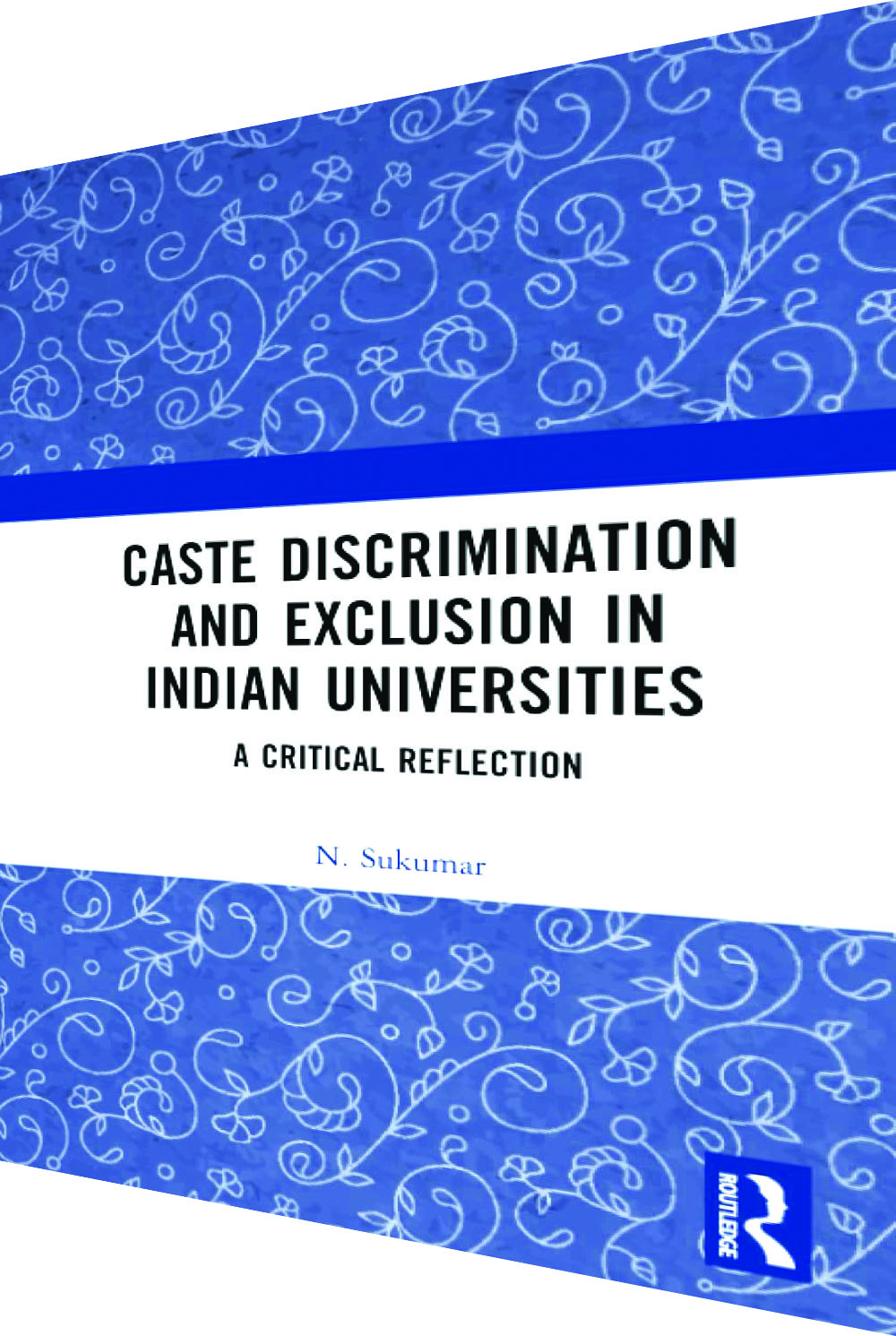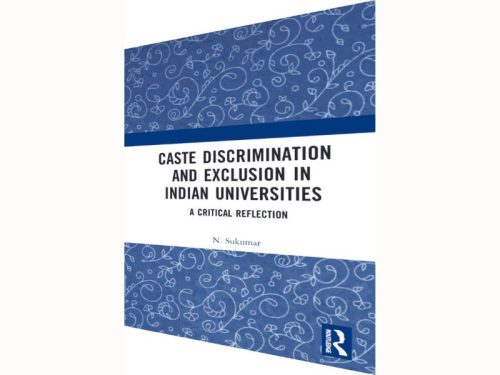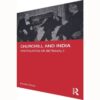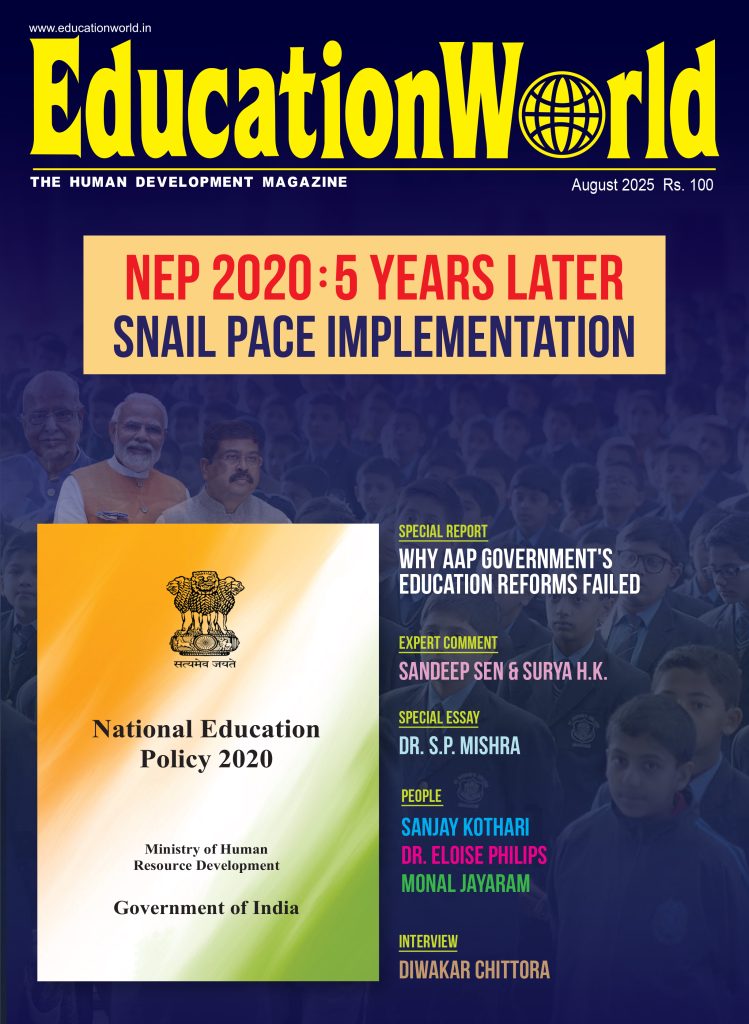Pernicious casteism in academia
Caste discrimination and exclusion in Indian universities: A Critical Reflection
N. Sukumar
Routledge
Rs.12,600 Pages 215
With comprehensive ethnographic research, Sukumar details how caste continues to shape the functioning of India’s universities

Knowledge, at least in its a priori form, promises to be liberating. The thought of being able to learn, question, unlearn and then relearn is deeply empowering. However, knowledge production and knowledge dissemination seldom remain under the control of one individual. Knowledge can become liberating and empowering only if its systemic functioning is informed by sentiments of equity, empathy and respect.
The space of a university, more so a public university, is theoretically meant to be a place where the individual navigates social and cultural fissures encountered in the outside world. But what happens when this space, which promises socio-cultural emancipation, is itself riddled with hierarchical notions of merit and privilege? What if the rosy-eyed emancipatory potentialities of the university space end up being a dystopian universe? What if the university becomes a crude extension of the outside world?
N. Sukumar’s insightful new book is a damning indictment of the profoundly inegalitarian nature of Indian universities. With focus on the everyday plight of SC (scheduled caste) students in Indian university campuses, Sukumar builds a harrowing narrative to argue how caste continues to shape the functioning of universities.
With a comprehensive ethnographic research work featuring interviews with 600 students from five Central and five State universities across India, the author’s work delineates multiple forms of caste discrimination and exclusionary practices that are strategically produced and reproduced on university campuses. Along with a meticulously detailed quantitative account, the author underlines the need to explore the often-neglected psychosocial dimensions and consequences of these practices.
As a first-generation student whose caste consciousness crystallised as a SC student in the post-Mandal phase in Hyderabad, Sukumar identifies subtle forms of caste performativity. To do that, he makes use of an exhaustive questionnaire which seeks to expose the nuances of caste signifiers in academic spaces.
These include issues about but not limited to, student enrolment ratios, scholarships, social bonding in classroom and hostels, research experience and supervision, administrative support, and legal and institutional support, among others. Interviews were conducted in Hindi, English, Malayalam, Tamil and Telugu. The interviewees included 412 men and 188 women.
Sukumar provides umpteen disturbing examples from his own fieldwork and supplements them by ingeniously infusing the narrative with already published accounts of exclusion and discrimination. His account begins with a theoretical framework to unravel pedagogy’s intimate connection with discrimination and exclusion. By using Bourdieu’s concept of cultural capital, Sukumar attempts to draw a direct linkage between the conceptualisation of merit and socio-cultural values of the privileged castes.
The narrative provides data featuring responses of students concerning casteist aspersions during M. Phil/Ph D interviews, deliberately less marks being given to reserved category students, unfair grade markings and less time with teachers and examiners for further clarifications, among others. SC scholars are pigeonholed as ‘Dalit’ scholars. Body language and ‘deviant’ behavioural signals are commented upon by staff and faculty members.
Scholarships are termed ‘charity scholarships’ if they are awarded to SC students. Sukumar elaborates on how even if SC enrollment has increased from the 1970s, the total number of fellowships is stagnant. Furthermore, some universities reinforce segregation by maintaining caste ghettoes in hostels. Problems of Dalit girl students go unnoticed, especially cases pertaining to sexual harassment.
Apart from these slightly more overt forms of discrimination, Sukumar is not afraid to deliberate on subtle forms of discrimination which he terms “bureaucratic semiotics”. To quote an example, he observes how the practice of publishing the entrance exam merit list reflects the varnashram dharma, as the list always begins with the general category, followed by the OBCs and SCs. This merit pyramid remains unreversed even if the SCs score more marks.
The persistent usage of derogatory terms like ‘quota children’, ‘category wallahs’, ‘preppies’, ‘bakasuras’ (gourmand) and ‘kumbhakarnas’ (one who is naturally lazy and sleeps for long hours) recurring episodes of curious astonishment tinged with mockery for the ‘merit’ caste. Sukumar deftly nudges our attention to show how this normalisation of casteist slurs pushes students to suicidal thoughts.
The book lays bare such veiled forms of casteism and makes an appeal to reflect and deliberate on the lived experiences through multiple case studies. By making use of ‘interpretative phenomenological analysis’, Sukumar lets students narrate their horrid stories in their own way, without corrupting their stream of anger and mourning with his own analysis. By turning academic spaces into narrative zones of shared experiences, the argument is quite simply, to see this space as one of ‘self-reflexivity’ instead of ‘self-improvement’.
Surajkumar Thube (The Book Review)



















Add comment